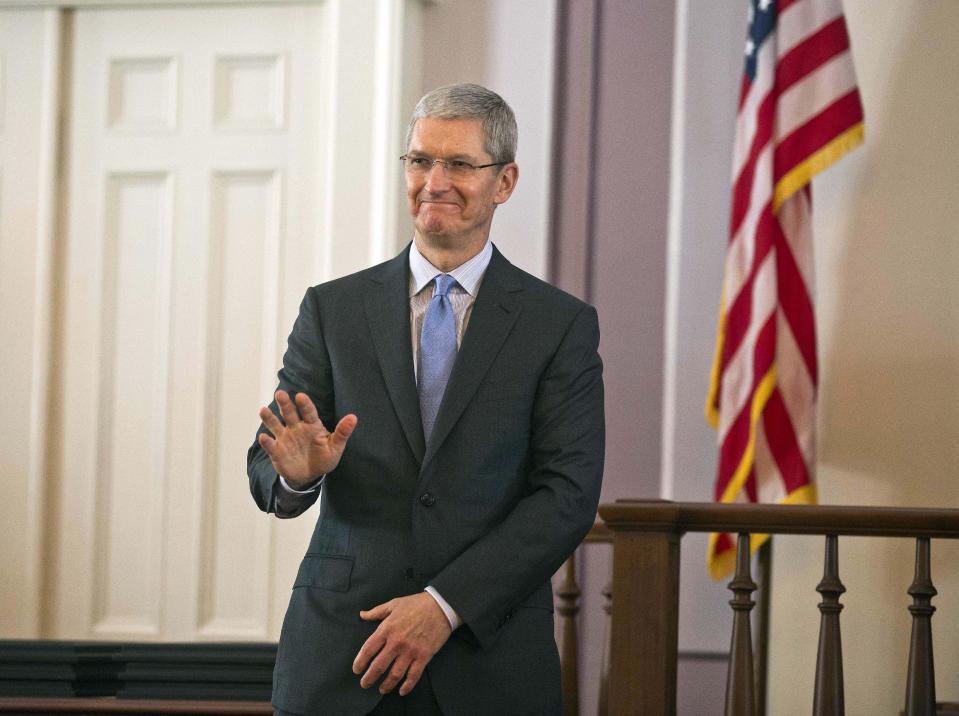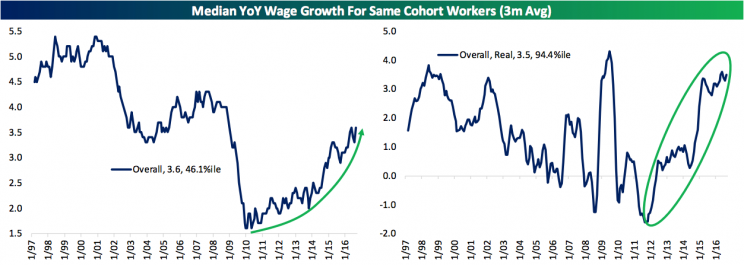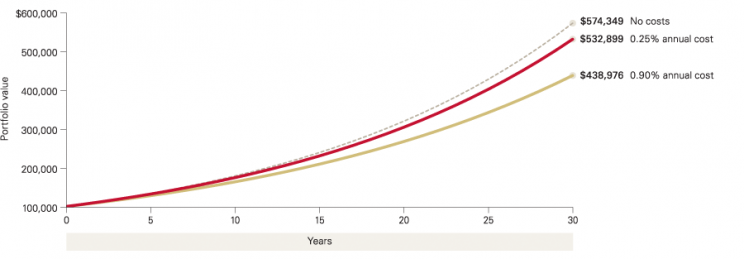WEEK AHEAD: Apple, Alphabet, and America on deck

Earnings season is in full swing with Apple (AAPL), Alphabet (GOOGL), Amazon.com (AMZN), Exxon Mobil (XOM) and Caterpillar (CAT) among big names scheduled to announce Q3 results this week. Hopefully, we’ll get a better sense of whether corporate America’s earnings and revenue recessions are coming to an end.
Markets, however, remain focused on the US presidential election, now less three weeks away. Wednesday’s third and final presidential debate took control of the broader news cycle. The economy was generally under-discussed throughout the debates — and, frankly, the whole election cycle. Rick Newman’s column out Thursday gives the definitive overview of how both candidates missed the mark on this issue: Both Trump and Clinton are living in the past.
In the week ahead, Apple will highlight the heavy earnings flow expected to cross the tape. We’ll also get the first reading on third-quarter GDP next Friday.
Week In review: Housing, Netflix, and wages on the rise
This past week saw the release of quarterly results from Dow members Microsoft (MSFT), McDonald’s (MCD) and GE (GE), along with tech major Netflix (NFLX).
Shares of tech stalwart Microsoft hit their highest level since 1999, the peak of the internet bubble, after the company’s earnings beat expectations.
McDonald’s reported earnings and revenue that beat expectations with the fast-food chain citing the continued success of its all-day breakfast offerings.
Netflix shares rose 19% on Wednesday after the company reported earnings that blew away estimates. Netflix said it plans to make 50% of its total content original over the next three years, citing the success of in-house productions like this summer’s runaway hit, “Stranger Things.”
On the economic data front, the US housing market was in focus.
Housing starts and building permits data on Wednesday disappointed, with overall building activity dropping to a 18-month low, though all of this drop was attributable to a decline in multi-family units. Earnings results from homebuilder Pulte Group (PHM) out Thursday made clear the US single-family housing market remains strong.
Existing home sales data out Thursday showed completed transactions rose 3.2% in September to an annualized rate of 5.47 million homes.
The Federal Reserve’s latest Beige Book report and data from the Atlanta Fed showed a continued improvement in the labor market, particularly when it comes to worker pay.
The Beige Book, a collection of anecdotes collected by Fed officials, said, “The Philadelphia District cited more upward wage pressure for some skilled jobs, while the St. Louis and San Francisco Districts said pressure intensified for some entry-level positions. These increases were often driven by a shortage of available workers.” (Emphasis added.)
Meanwhile, the Atlanta Fed’s latest monthly data on median wages rose 3.6% in September. “Overall, the monthly Atlanta Fed analysis continued to show quite a dramatic acceleration in wage growth across the labor force,” Bespoke Investment Group wrote in a note to clients this week.

Top market story: The passive vs. active investing debate rages on
The hottest topic in the investing world for the last couple years has been the ongoing discussion around active versus passive investing.
And so this week, the Wall Street Journal released a multi-part series on the rise of passive investing.
Active investments are those in which money is entrusted to an individual who invests at their discretion. Passive investments are those in which money is invested to track an index of securities. Active investments have parameters; passive investments have rules.
But active and passive definitions of investment strategies have also become stand-ins for “expensive” versus “cheap” investment strategies. The best way for the average investor to outperform their peers is to lower their fees. The conventional wisdom, then, has become that the average investor ought to invest passively.

But as Jack Bogle, the legendary founder of Vanguard and the father of the index fund, told The Wall Street Journal, “There’s passive strategies and there’s passive investors. And these are two different things.”
Passive strategies follow rules. Passive investors might not follow anything, including their investments. Successful investing, no matter how it is executed strategically, requires humility, focus, attention, and commitment.
This past summer, strategists at Bernstein caused a stir when they called passive investing a worse outcome for markets that Marxism. Elsewhere, the rise of passive investing has been called “investor socialism.”
These hyperbolic formulations of why active management has a place inside a portfolio are clearly defenses from an industry feeling the pressure of changing customer expectations.
“Picking stocks is at heart an arrogant act,” write The Journal’s Dennis Berman and Jamie Heller. “It requires in the stock picker a confidence that most others are dunces, and that riches await those with better information and sharper instincts.”
Perhaps.
But a recent paper from Lasse Heje Pedersen at AQR Capital Management challenges one of the defining tenets of modern investing — Bill Sharpe’s “arithmetic of active management.”
Sharpe’s formula states that “it must be the case that (1) before costs, the return on the average actively managed dollar will equal the return on the average passively managed dollar, and (2) after costs, the return on the average actively managed dollar will be less.”
But Pedersen contends that this formulation misses how turnover of “the market” to which the passively managed dollar is indexed creates ample opportunities for the active manager to provide alpha, or outperformance.
Additionally, the efficient allocation of capital encouraged by the market’s active participants creates the conditions for the existence of passive investing at all.
“The capital market is not a zero-sum game,” Pedersen writes. “It is a positive-sum game.
“Issuers benefit from access to capital markets, passive investors benefit from low-cost access to earning a return close to the market risk premium, and active managers benefit from their information collection efforts through potentially even higher returns before costs. Hence, information collection is socially valuable because it facilitates efficient resource allocation for the economy through the issuance of new securities by productive firms.”
Though perhaps the most succinct, if indirect, defense of active management came not from a traditional portfolio manager, but short-seller Jim Chanos this week.

Speaking at the Vanity Fair New Establishment Summit this week, Chanos said that a good short portfolio allows an investor to be “more long.” That is, good short bets allow investors to more fully express their belief in companies or investments they think will gain value over time. Good short bets grease the wheels of your portfolio.
And in this sense, passive management is like having a good short book.
For a small fee, investors can capture the return of a broad basket of securities, say, the S&P 500 or the Russell 3000. These are big, benchmark stock indexes that perform roughly in-line with the whole of American business. A stock investor will not fall behind the pack cheaply buying these indexes.
And so active management, then, is the high-conviction bet, the investment you make to not match but beat the market. Active management, in Chanos’ formulation, investors going “more long.”
Many investors will be content to fully-invest their retirement savings in passive strategies. But the rise of cheaper methods for retirement savings does not erode the ability of those who seek to outperform the market to do so.
In fact, it is passive investing that makes active investing possible.
Economic Calendar: Third-quarter GDP on deck
Monday: Markit Flash Manufacturing PMI (51.6 expected; 51.5 previously)
Tuesday: S&P/Case-Shiller Home Prices (+0.15% expected; -0.01% previously); Conference Board Consumer Confidence (101 expected; 104.1 previously); Richmond Fed Manufacturing (-4 expected; -8 previously)
Wednesday: MBA Mortgage Applications; Markit Flash Services PMI (52.5 expected; 52.3 previously); New Home Sales (600,000 expected; 609,000 previously); Crude Oil Inventories
Thursday: Initial Jobless Claims: (255,000 expected; 260,000 previously); Durable Goods Orders (+0.1% expected: +0.1% previously); Pending Home Sales (+1.2% expected; -2.4% previously)
Friday: Third-Quarter GDP (+2.5% expected; +1.4% previously); Employment Cost Index (+0.6% expected; +0.6% previously); University of Michigan Consumer Confidence (88.2 expected; 87.9 previously)
ICYMI
Investors pull $28 billion from hedge funds in the third quarter, the biggest outflow since 2009.
A big US infrastructure package is exactly what the economy doesn’t need right now.
British American Tobacco offers to buy Reynolds American for in a $47 billion deal.
Qualcomm is nearing a deal to acquire NXP Semiconductors for $37 billion.
AT&T is in advanced talks to acquire Time Warner.
Wells Fargo loses its Better Business Bureau accreditation.
—
Myles Udland is a writer at Yahoo Finance.
A top US homebuilder is cashing in on a big problem in the housing market
The one thing Trump and Clinton agree on may be a terrible idea for the US economy
